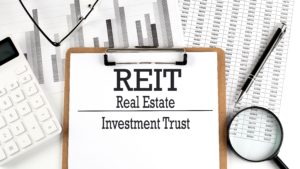Investing in real estate
If you are looking for investing in real estate, then watch this video to learn everything you need to know about investing in real estate
Hi folks. This is Big Mike, Mike Zlotnik. This is an educational video talking about investing in real estate. It’s a broad topic, so I’ll cover as much as I can in a very short time. I will omit some details; you can learn more about that in future videos or contact us. So what is investing in real estate?

Investing in real estate could be in two forms. One, you could be an equity investor in real estate. Basically, you could own real estate; you could own a single-family house. The house you live in that is an investment real estate. The house that you buy to rent to someone else. It could be a single-family, a duplex, a triplex, a quadplex, or a commercial deal, like a multi-family deal, a self-storage, a shopping plaza, an industrial, and so forth.
You could be an equity investor effective on an owner. An alternative to that is you could be a lender. You could loan the money on a property owned by somebody else. You could either be a lender investor, or you could be an equity investor. There are a few different ways to invest in real estate so that you can invest in the form of a single asset.
Basically, you buy a property by yourself, or you could buy an asset with partners. So when you invest with partners, it’s typically called a partnership. The next level of investing, a bit more complicated, is called syndication when you participate with other investors as passive investors, as limited partners in a deal.
That is operated by somebody else called a general partner. So you can invest in real estate by participating in syndication or participating in a partnership. The difference between syndication and a partnership is in a partnership. Most partners are active, although there are partners that could be money partners or passive partners, and they’re called limited partners, LPs.
Then, the partners that run the business are called general partners or general partners. So in syndication, the General partner runs the asset, the value strategy, all the work on the property, the financials, and so on. Another form of investing in real estate is investing in a fund.

REIT is a form of a fund. REITs are well known; they’re publicly traded, and there are strengths and weaknesses in investing in a reit. There are also plenty of private funds. Many private funds could be more attractive than REITs and some, REITs could be more attractive than private funds. So again, what are the benefits of investing in real estate?
Let me go through some of the basic benefits. Number one, investors in real estate get tax benefits in the form of depreciation. Depreciation is a very powerful benefit. It allows folks to collect the cash flow and use a pseudo deduction, depreciation, as a way to mitigate or reduce taxes.
So depreciation is very powerful. It’s one of the benefits. Now, the benefit of investing in real estate is depreciation. Depreciation is appreciation. Appreciation means the growth of the value of the real estate over time. The next benefit of investing in real estate, as an equity investor, all these are applicable to equity, is amortization.
You can have a mortgage, and you can pay down the principal. Over time, by building up more and more equity, you can have a modernization in the property. And the next benefit is cash flow. You could buy an asset, get a mortgage, and have some cash left over. That is a benefit of investing in real estate.
And if you’re a lender on a real estate project, one of your benefits would be cash flow. So lenders typically don’t get any depreciation. They don’t own the asset but are in a senior position. They record a mortgage or deal of trust as a lien against the property and are ahead of the equity in case of a problem with the property.
Lenders get the cash flow to get seniority if there’s a problem, and they generally get steady, predictable income. What kind of real estate assets can you invest in? You can invest in residential real estate. For example, 1, 2, 3, or four doors are residential, but you can invest in commercial real estate.
Commercial real estate is everything else other than residential real estate. It’s a multi-family asset. It’s office buildings, industrial shopping plazas—some flex buildings and some niche strategies. Land is also considered commercial land improvements, development, redevelopment, and so on.
These are generally strategies associated with commercial real estate, although it could be a ground-up residential development too. So again, this a residential, and it’s commercial. And, as far as typically your consideration to invest in real estate, you either invest as your primary residence. In this place, you’re going to live, or you’re going to invest in real estate because it’s an investment. You’re looking at that as an investment property.

So there are multiple strategies for these investments. So far, we have covered only the types of investments, the high level, but there are investing in essentially performing real estate. Something that is in good shape, in good condition, generating good cash flow, and that is investing in properties for existing.
Some, some growth with the market. There are also different types of projects known as value add projects. In the value adds space, you invest in a project that typically needs a good amount of work. It’s a reposition of the, a repositioning of the asset. Give you an example of a Value add project.
There are many examples, but the simplest one is you take an existing multi-family asset. The units have not been renovated in 10 to 15 years. They look a little aged, a little old. The rents are kind of low, and as the project, executes value as strategy, which typically includes external renovation, siding, roofs, landscaping clubhouse, common areas, those get improved, as well as internal renovations where the units get renovated.
New appliances, all carpets get remove. New hardwood flooring gets installed. Floor plan can be, improved. Open spaces, bathrooms are innovated and so on and so forth. Those renovations would increase the value of the apartment. It’ll be more attractive. It’ll look like a new product, and the rents could be charged substantially higher.
Other value strategies could be ground up construction. An example of either multi-family or self-storage or industrial, the value add. Amount of work depends on the strategy. There are value add strategies where you can invest in debt too. You could buy a defaulted note, mortgage defaulted note, and foreclose on a property.
It’s a value add work to, to actually do the foreclosure. As a result of that, it enhances the value of your investment. So there are multiple value add strategies. I just want you to understand this point. The difference between kind of performing assets and value add, value add have typically more risk, but a lot more upside as the result.
And one of the big differences, by the way, is just a high level. Folks have asked us what’s the difference between some of the real estate funds that we manage and reits. Just for simplicity’s sake, most of the reits invest in performing assets. They want good cash flow distribute to their investors. So the reits typically, Steady Eddie, more predictable investments, but their rates of return that targets are lower than some of the value adds that we invest in.

What often happens we’ll invest in a value add strategy as part of our funds, and then we’ll actually exit sale to read when the, when the price of the property is substantially higher than we acquired it at. So this is the best way to. What we do versus what, reeds do is, we invest in the value add phase of many of the projects while Reits typically invest in the performing side of these type of projects.
Again, there are a few ways to invest. Most, most commercial investments are done with partners through form of syndications or partnerships, which is very important. they group the capital together, acquire bigger assets, get better economy of. As a result, get outsized returns. once again, real estate is acquired with leverage.
A leverage works both ways. It’s a beauty and a curse. It’s a very powerful, mechanism for how you can enhance your returns. So leverage typically means when you buy a property as an equity investor or with partners to a syndication or a partnership. you borrow money from a bank in the form of a mortgage.
And mortgage can magnify the return substantially, because the mortgage could be 6% mortgage while the average return, annual return on the property. if the, if the property was bought for cash and the value add is executed, could be 15%. So equity gets magnified by having debt on a property that costs less than the equity returns on equity.
So leveraging mortgage, is a powerful technique, but as a deal doesn’t go well, it backfires. Then the mortgage could actually foreclose on a property the lender. And, take the asset away and equity investments could lose money. So you need to understand the pros and cons of real estate investing.
It is not risk free. There’s a risk in everything, but risk is much better. Understand, understood, and predicted versus investing in, for example, stocks, in my opinion. Of course, there are different strategies, different operators, different executions, but in generally, one word describes real estate investing in comparison to the stock market.
Real estate investing is much more predictable. It’s a lot easier to predict what’s gonna happen in real estate versus what’s gonna happen in a stock market. So as a, as ake real estate investing is a very powerful way to grow wealth. Most of the wealth in the United States has been built through real estate investing for reasons that I mentioned.
One of them is other people’s money leverage borrowing cheap money from the banks, investing, for growth, executing value as strategy can substantially enhance rates of. Provide a lot more predictability, provide a lot, a lot of tax benefits, and generate a lot more wealth than a stock market. So something to keep in mind.
We love doing real estate. This is all we do. We only invest in real estate. It is our passion, but I wanted to share the passion with you. Appreciate your time and attention. Happy to answer future questions. Reach out to us. If you’re interested in our funds and syndications. Please, request PPM private place memorandum, we are open to accredited investors only. Also consult with your attorney,and/or your CPA professional . Thank you kindly.
*This video is intended to provide information and marketing highlights.
Forward-looking statements and past performance should not be relied upon
for investment decisions, which can only be facilitated through our securities
documentation.
#investing #realestateinvestments #reit #commerlialrealestate #investinginrealestate

